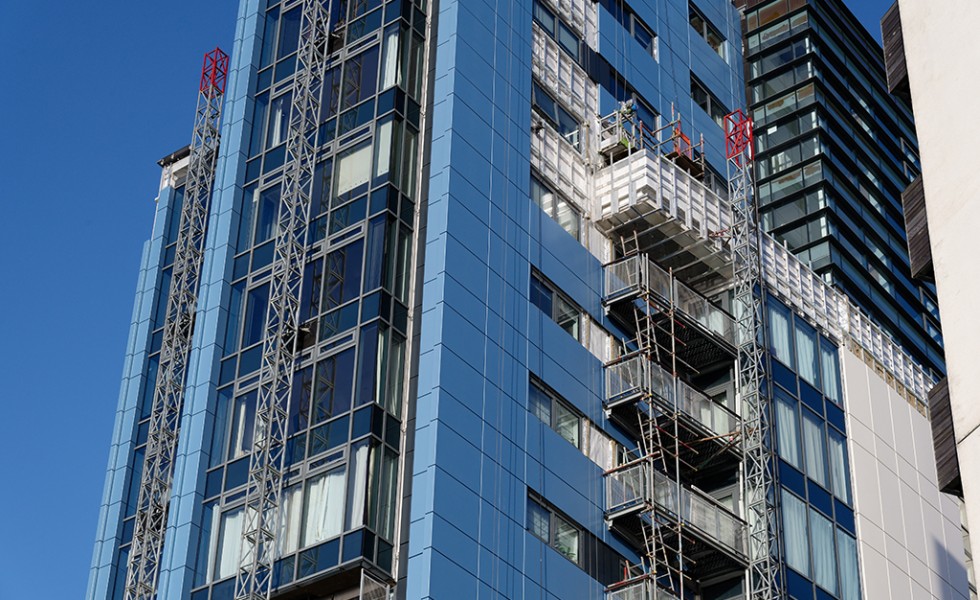Willmott Dixon slams ‘considerable uncertainty’ over high-rise regulations
31/7/23
The chief executive of Willmott Dixon has warned schemes may be cancelled due to "considerable uncertainty" over the regulatory requirements around second staircases in high-rise blocks.
Rick Willmott issued the warning as the industry waits to see if the government's soon-to-be-updated fire safety regulations on second staircases go further than its current proposals.
He said: "The implications of the Building Safety Act continue to be interpreted and there remains considerable uncertainty on the government's evolving regulatory position on high-rise residential construction, which will only lead to the postponement or cancellation of developments while the industry waits for clear and unambiguous regulation."
The government's current proposal, which went out to consultation last December, is to make residential buildings over 30 metres have a second staircase.
However, the National Fire Chiefs Council (NFCC), councils, architects and disability campaigners are among those urging this threshold be lowered to 18 metres.
Last month, it emerged that a £1.5bn Wates job in east London had been paused, with the government's failure to make a decision over second stair cases blamed.
It comes as developers and contractors get to grips with the new regime under the Building Safety Act, which became law last year but has an 18-month enactment period for all requirements to come into force.
Willmott also revealed that his firm's bottom line was hit by building safety provisions of £61.8m in its last full-year.
The provisions, lower than last year's restated figure of £68.2m, were made to reclad property originally signed off as compliant by Local Authority Building Control but "where that compliance has been reinterpreted under the post-Grenfell safety regime", according to Willmott.
He warned that Willmott Dixon will look to recover these costs from consultants and subcontractors.
"We naturally expect to recover a substantial portion of this from designers, fire engineers, supply chain and insurers who, so far, have not faced up to their responsibilities or obligations across those 'in scope' projects," he said.
It is understood the provisions relate to fewer than 10 buildings.
Willmott Dixon is already taking legal action against consultant Aecom, envelope specialist Prater and architect Sheppard Robson over defective cladding on a residential building in Woolwich. The defendants deny they are responsible.
Another Willmott Dixon-built housing scheme, in south London, has been vacant for four years pending the remediation of its external wall system after the building was deemed unsafe.
Willmott said 2022 had been a "complicated and difficult year" due to the lingering effects of Brexit and Covid along with the impact of the war in Ukraine.
"With all those features compounded by the economic fallout of prime minister Truss' September budget and the inevitable surge in interest rates, our industry sits amidst a volatile, inflationary market and an uncertain political environment," he added.
Willmott Dixon has not disclosed its full financial results for the year to the end of December 2022.

